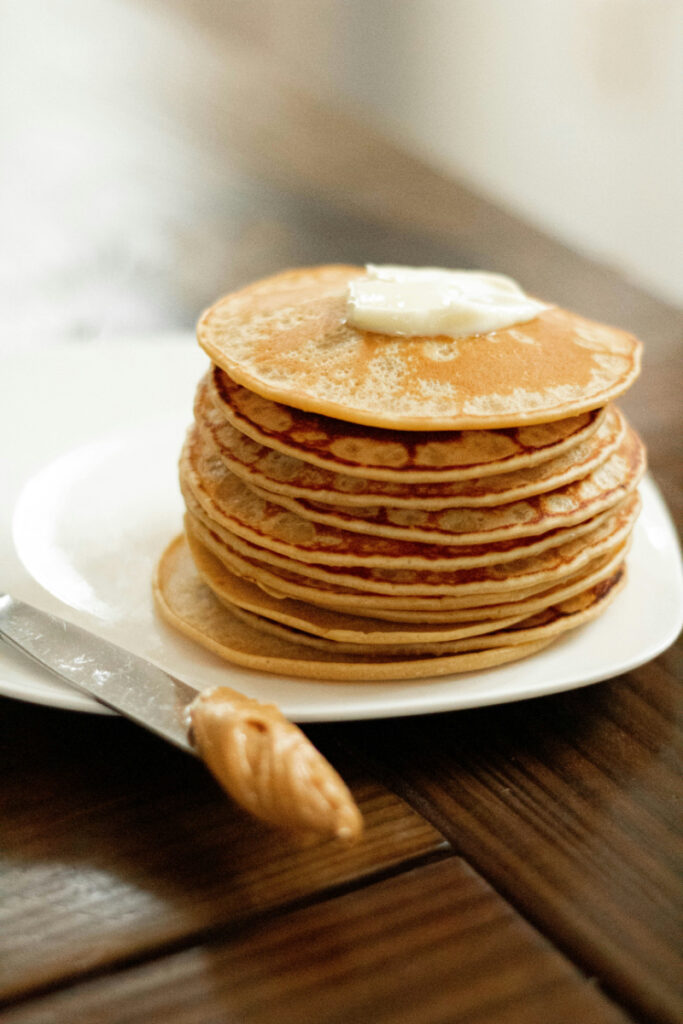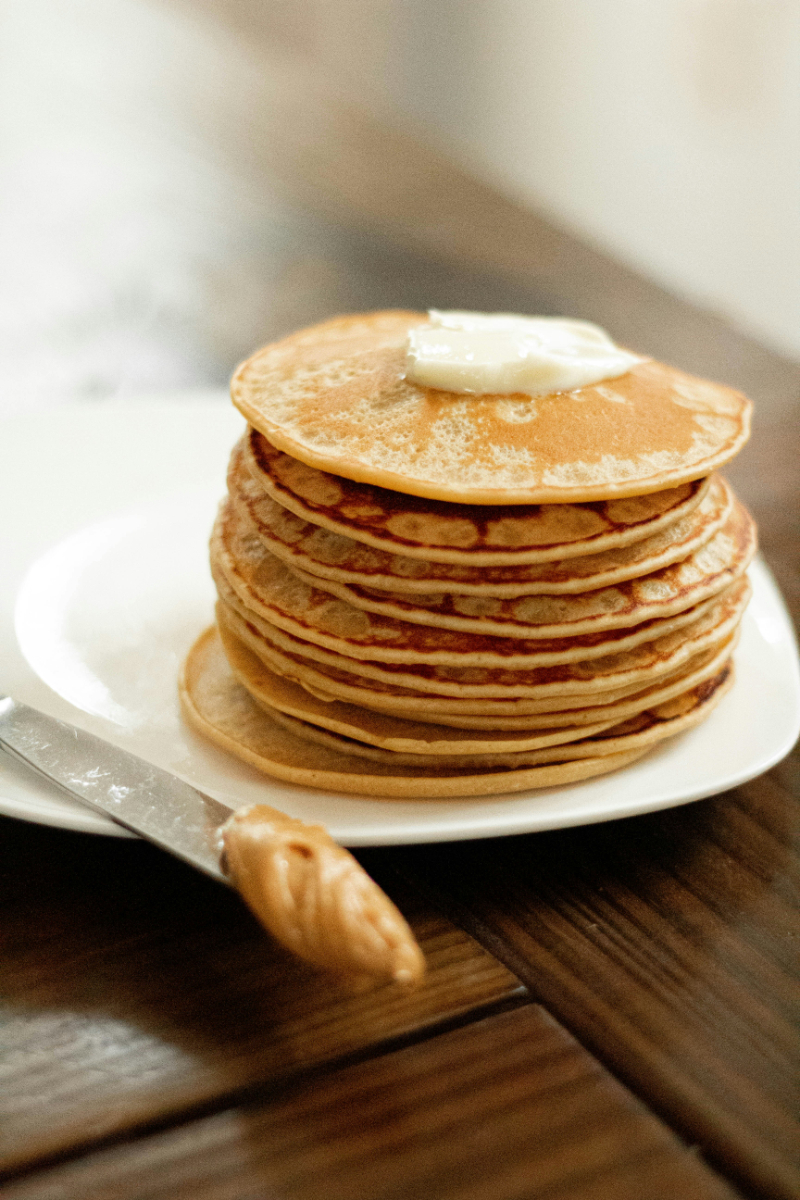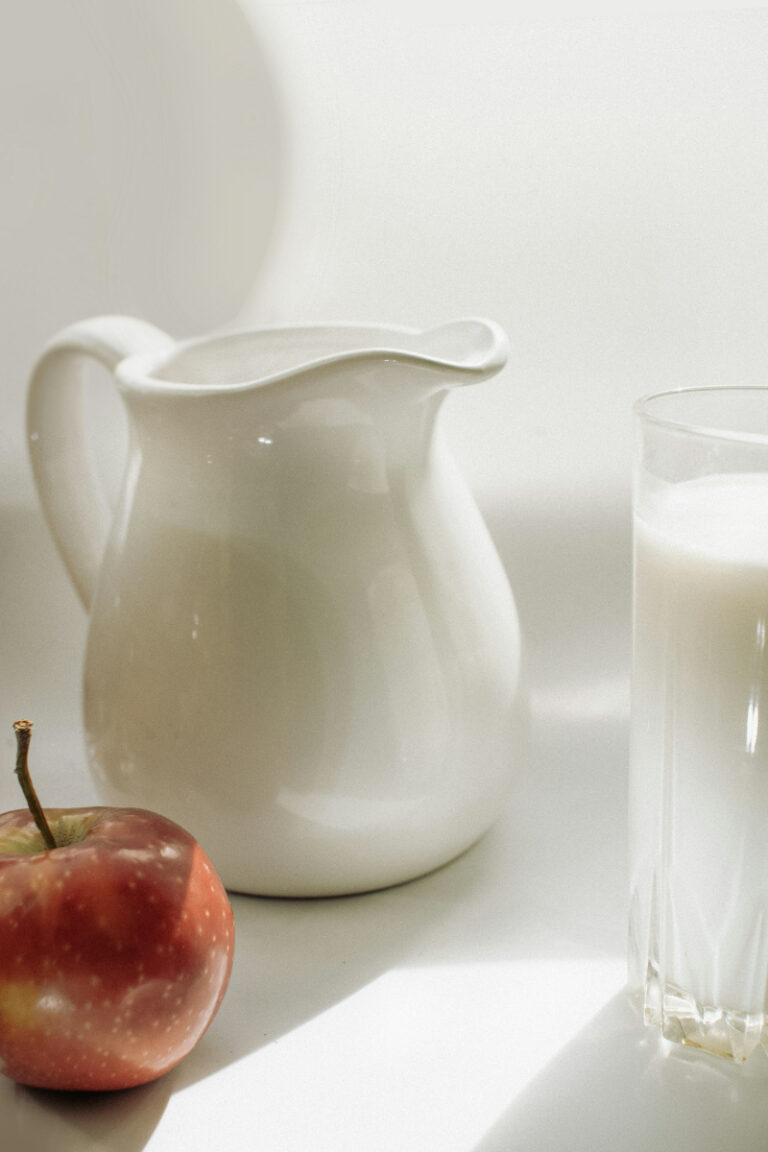How Many Carbs in Cottage Cheese Pancakes: A Friendly Guide
If you’re a fan of pancakes, you might be wondering how many carbs are in cottage cheese pancakes. After all, if you’re following a low-carb diet, you need to be mindful of the number of carbs you consume. Fortunately, cottage cheese pancakes can be a great low-carb breakfast option, especially if you’re looking to increase your protein intake.
Cottage cheese pancakes are a popular breakfast food that is easy to make and delicious. They are made with a mixture of cottage cheese, eggs, and flour, and can be flavored with a variety of ingredients such as vanilla extract, cinnamon, or blueberries. Cottage cheese is a great source of protein, which makes it an ideal ingredient for those who are looking to increase their protein intake. Additionally, cottage cheese is low in carbohydrates, making it a great option for those who are following a low-carb diet.

Nutritional Profile of Cottage Cheese Pancakes
If you’re looking for a low-carb breakfast option, cottage cheese pancakes can be a great choice. They are high in protein and low in carbs, making them a filling and satisfying meal. Let’s take a closer look at the nutritional profile of cottage cheese pancakes.
Carbohydrate Content
Cottage cheese pancakes are a low-carb alternative to regular pancakes. A single serving of cottage cheese pancakes contains around 8-10 grams of carbohydrates, depending on the recipe and the toppings used. This is significantly lower than the 20-30 grams of carbs found in a typical serving of regular pancakes.
The low-carb content of cottage cheese pancakes makes them a suitable option for people following a low-carb or ketogenic diet. They can help you stay in a state of ketosis, where your body burns fat for fuel instead of carbohydrates.
Comparison with Regular Pancakes
Compared to regular pancakes, cottage cheese pancakes are higher in protein and lower in carbs. A single serving of cottage cheese pancakes contains around 15-20 grams of protein, while a serving of regular pancakes contains only 3-5 grams of protein. This makes cottage cheese pancakes a great choice for people looking to increase their protein intake.
In addition, cottage cheese is a good source of calcium, which is important for maintaining strong bones and teeth. A single serving of cottage cheese pancakes can provide you with up to 20% of your daily calcium needs.
Overall, cottage cheese pancakes are a nutritious and delicious breakfast option that can help you meet your daily protein and calcium needs while keeping your carb intake low.
Recipe Variations and Their Impact on Carbs
When it comes to making cottage cheese pancakes, there are many recipe variations that can impact the carb count. Here are a few things to keep in mind:
Flour Substitutes
Many cottage cheese pancake recipes call for flour, but if you’re trying to keep your carb intake low, you may want to consider using a low-carb flour substitute. Almond flour, coconut flour, and flaxseed meal are all popular options. Almond flour has 6 grams of carbs per 1/4 cup, while coconut flour has only 3 grams of carbs per 1/4 cup. Flaxseed meal has 0 net carbs per 1/4 cup.
Sweeteners
Some recipes call for sugar or honey, which can significantly increase the carb count. Instead, consider using a low-carb sweetener like stevia or erythritol. These sweeteners have zero or very few carbs and won’t spike your blood sugar levels.
Toppings
The toppings you choose for your cottage cheese pancakes can also impact the carb count. Fresh berries and whipped cream are low-carb options that add sweetness without adding too many carbs. Maple syrup and honey, on the other hand, are high in carbs and should be used sparingly.
Recipe Modifications
If you’re looking to reduce the carb count even further, you can modify your recipe to include fewer carbs. For example, you can use fewer eggs, which can reduce the carb count by up to 1 gram per egg. You can also reduce the amount of cottage cheese or use a lower-carb variety.
By making these simple modifications, you can enjoy delicious cottage cheese pancakes while keeping your carb intake in check.
Managing Carbs in Cottage Cheese Pancakes for Dietary Needs
If you’re watching your carb intake, cottage cheese pancakes can be a great addition to your diet. They are low in carbs and high in protein, making them a filling and satisfying breakfast option. However, it’s important to be mindful of the ingredients you use when making cottage cheese pancakes to ensure they fit within your dietary needs.

Here are some tips to help you manage carbs when making cottage cheese pancakes:
Choose the Right Flour
The type of flour you use can greatly affect the carb count of your pancakes. For a low-carb option, consider using almond flour or coconut flour instead of traditional wheat flour. These flours are low in carbs and high in fiber, making them a great choice for those on a low-carb diet.
Use Low-Carb Sweeteners
If you want to add a touch of sweetness to your cottage cheese pancakes, consider using a low-carb sweetener like stevia or erythritol. These sweeteners are low in carbs and won’t spike your blood sugar like traditional sugar would.
Watch Your Toppings
Toppings can add extra carbs to your cottage cheese pancakes, so it’s important to choose wisely. Instead of syrup or honey, consider topping your pancakes with fresh berries or whipped cream. These options are lower in carbs and will still give your pancakes a delicious flavor.
Keep Portion Sizes in Mind
While cottage cheese pancakes are low in carbs, it’s still important to watch your portion sizes. Eating too much of anything can lead to an increase in carb intake, so be mindful of how many pancakes you eat in one sitting.
By following these tips, you can enjoy delicious cottage cheese pancakes while still managing your carb intake.






